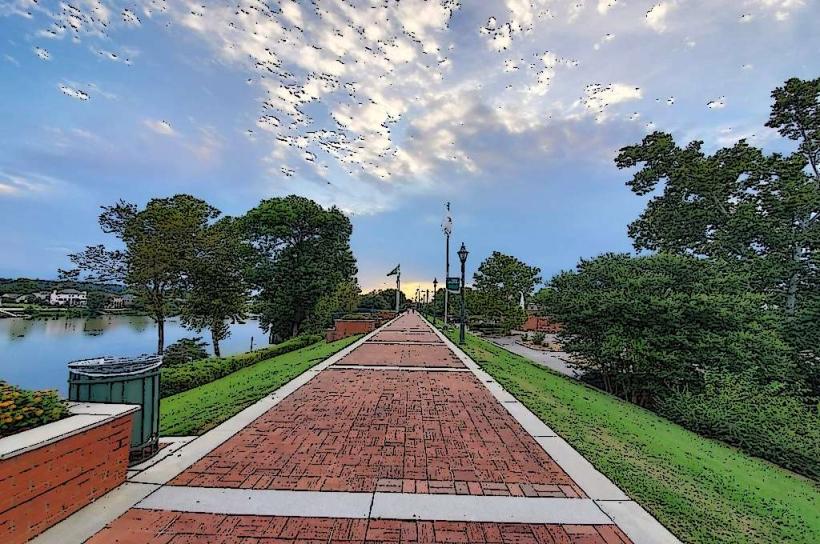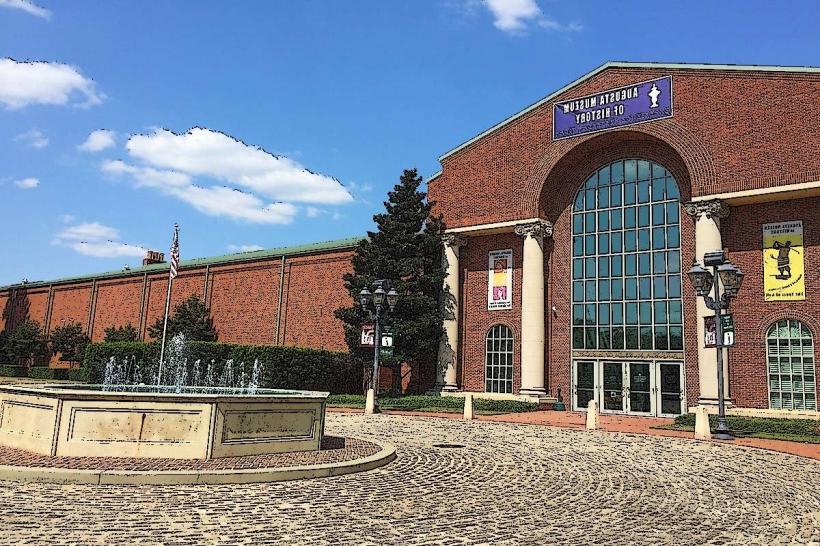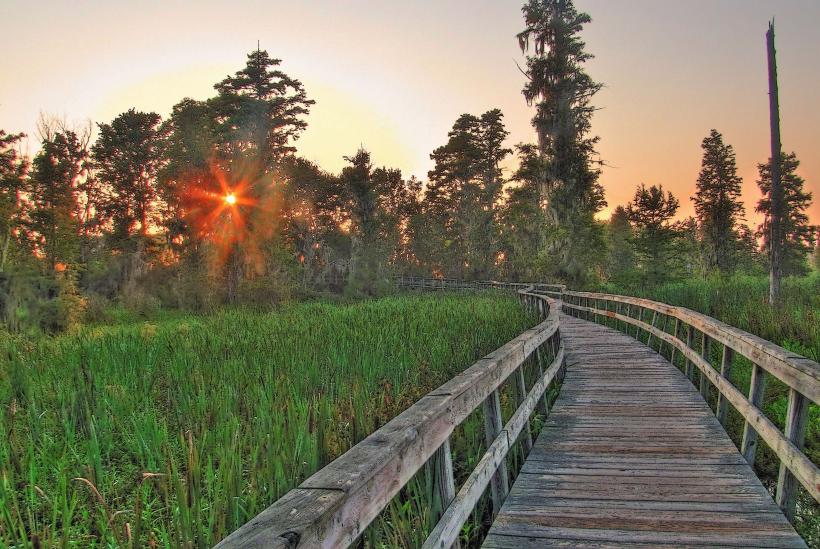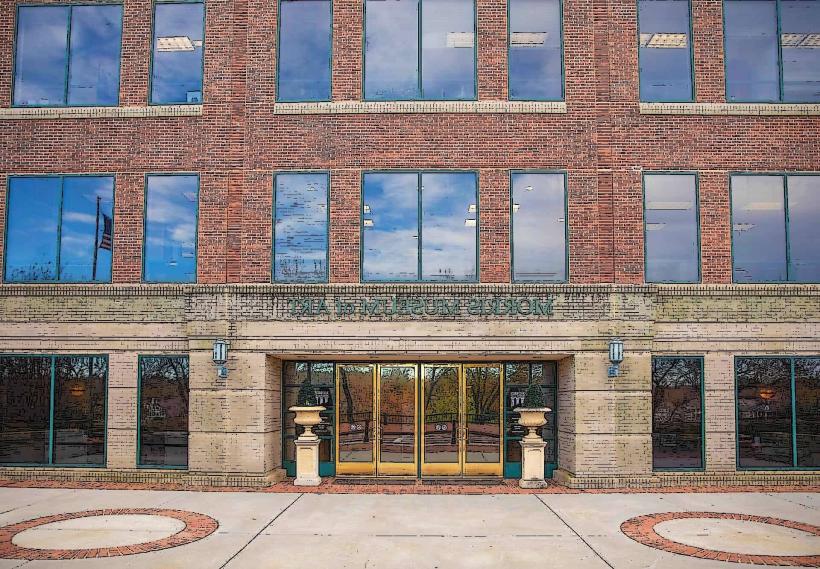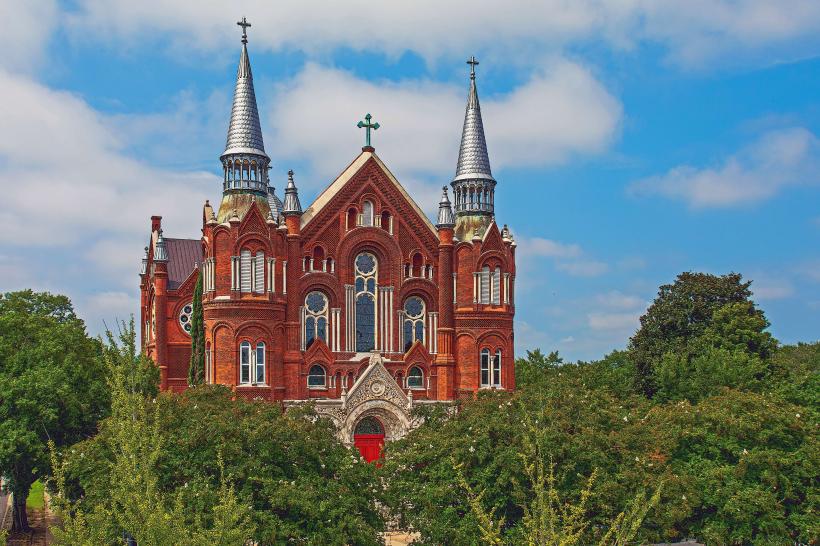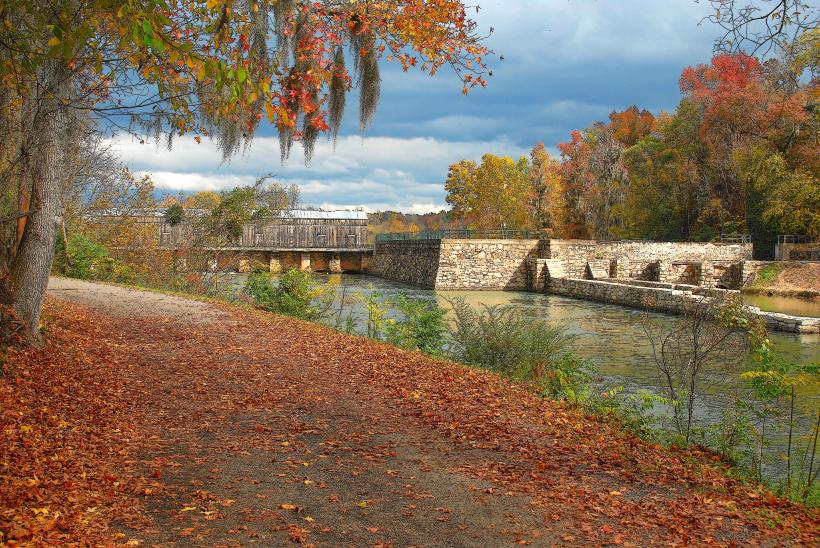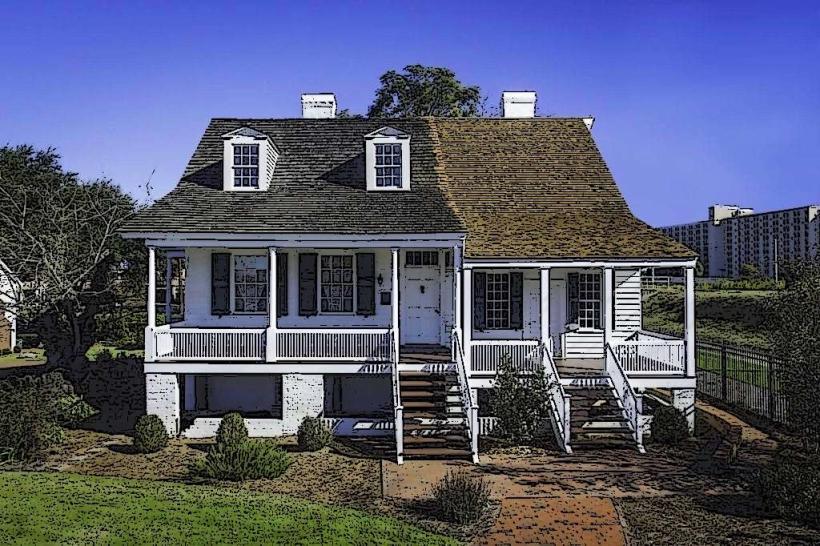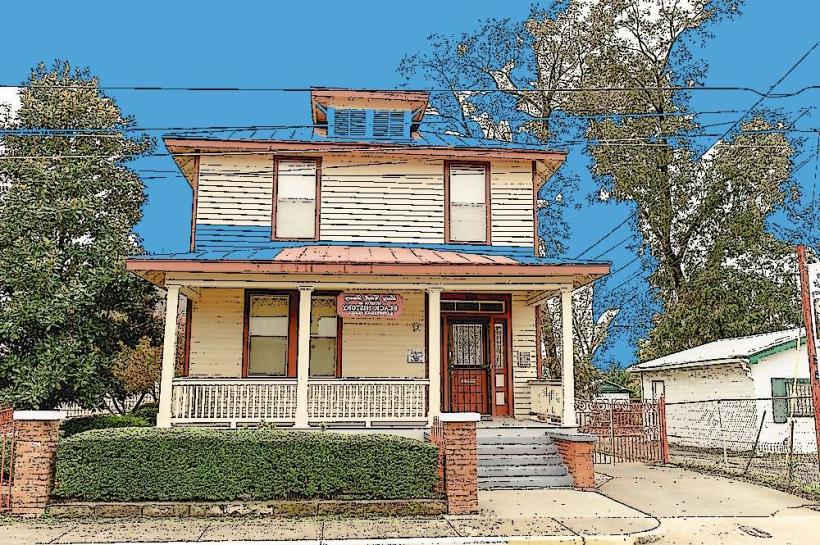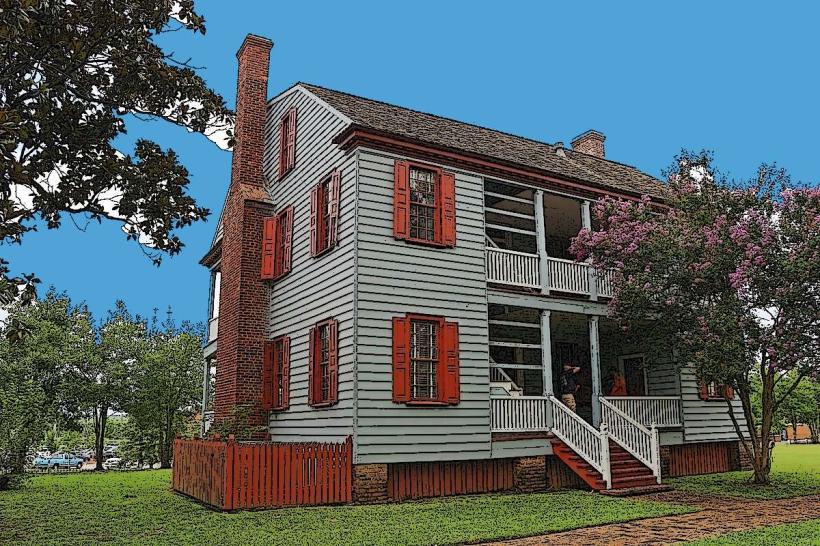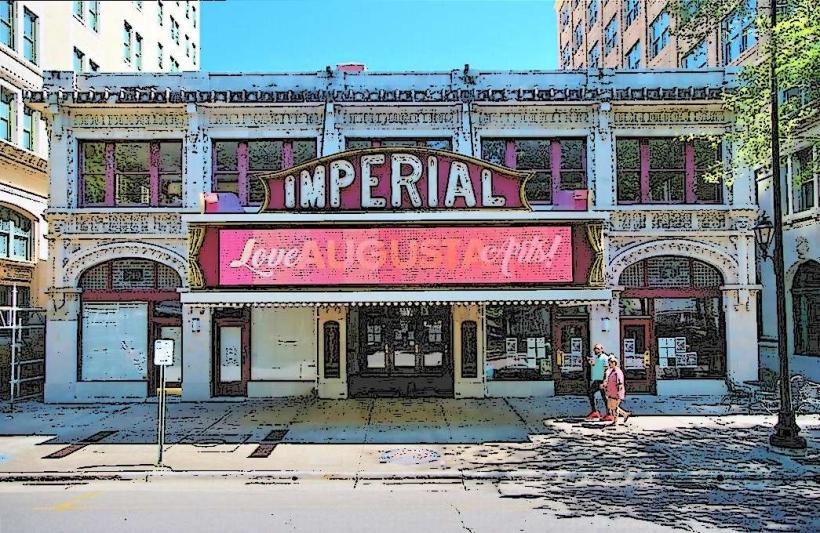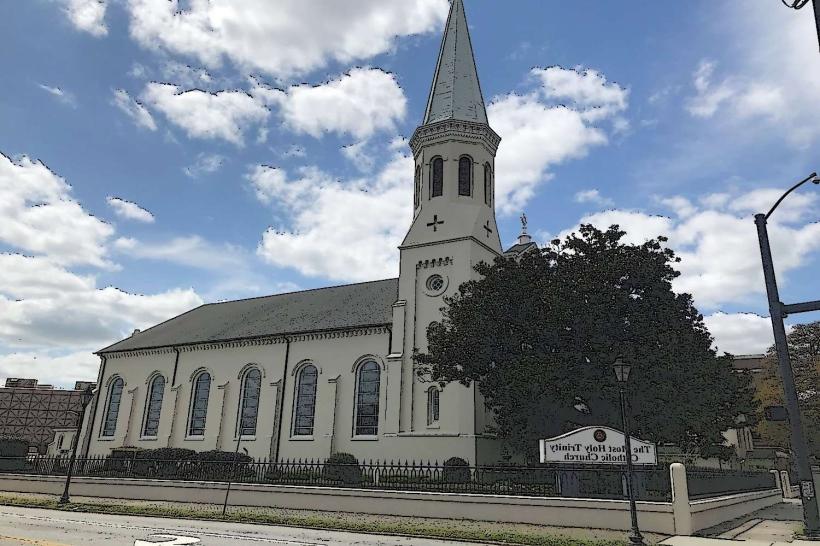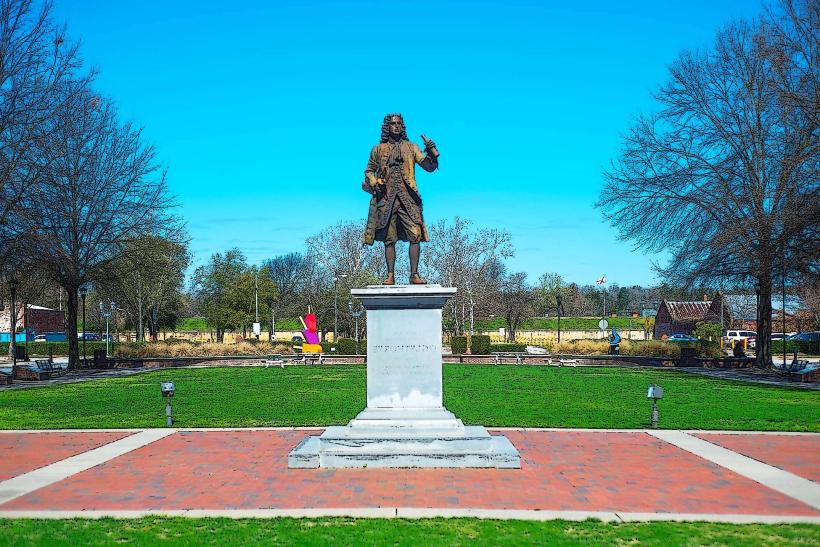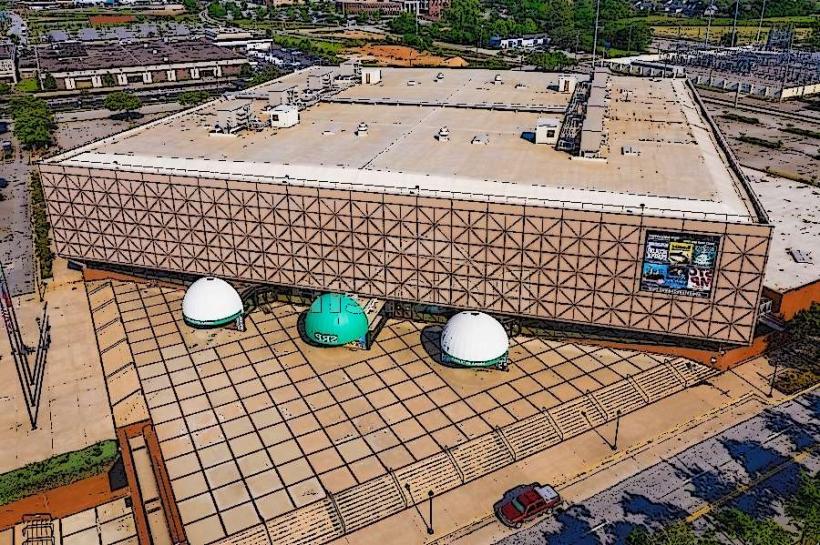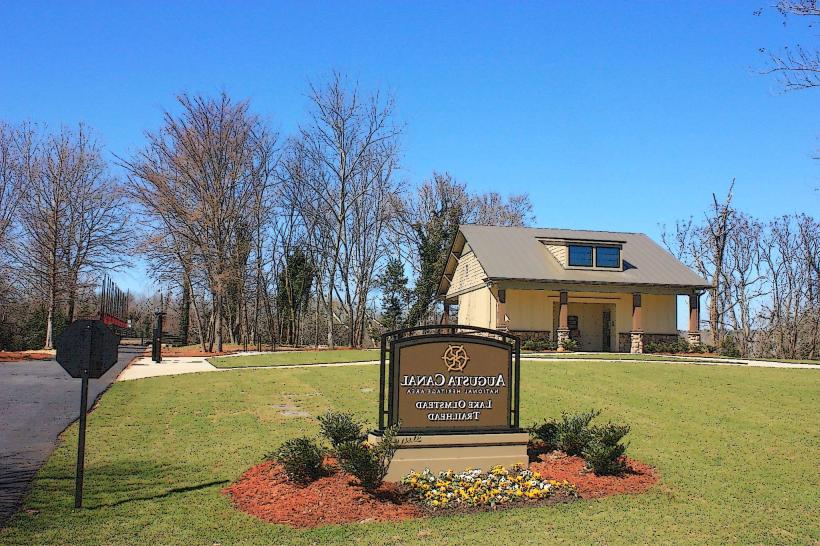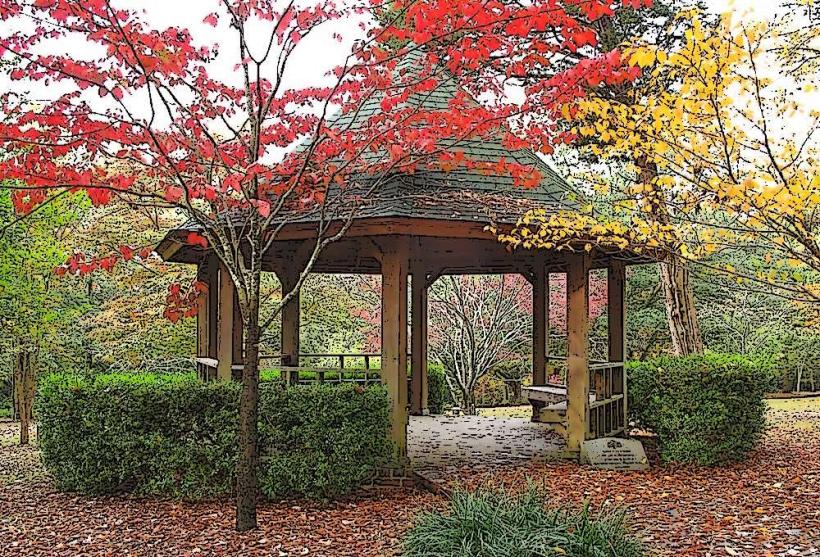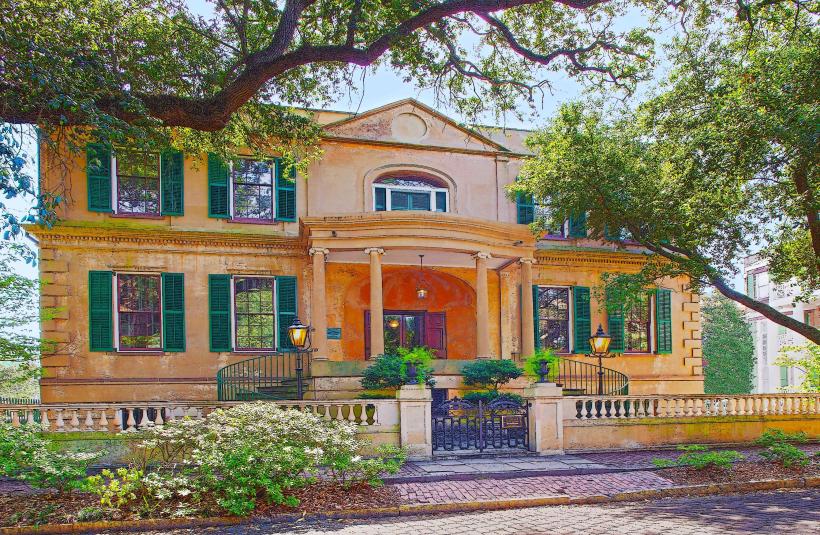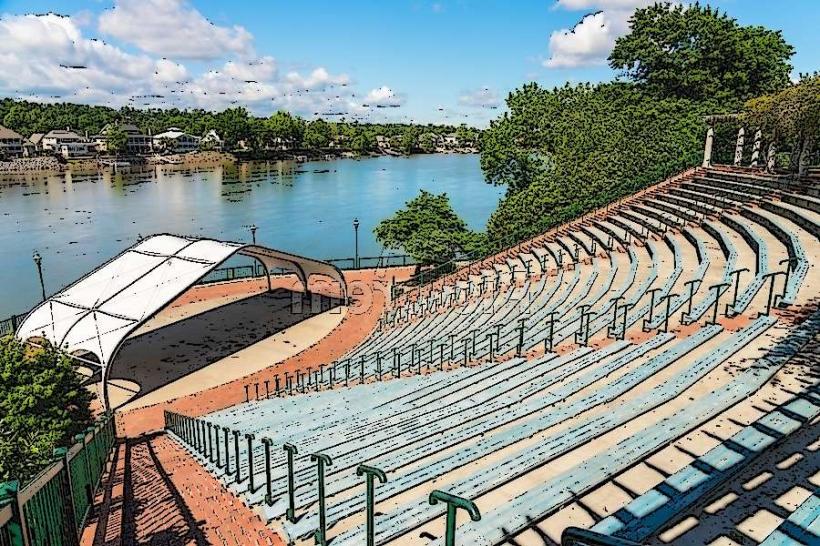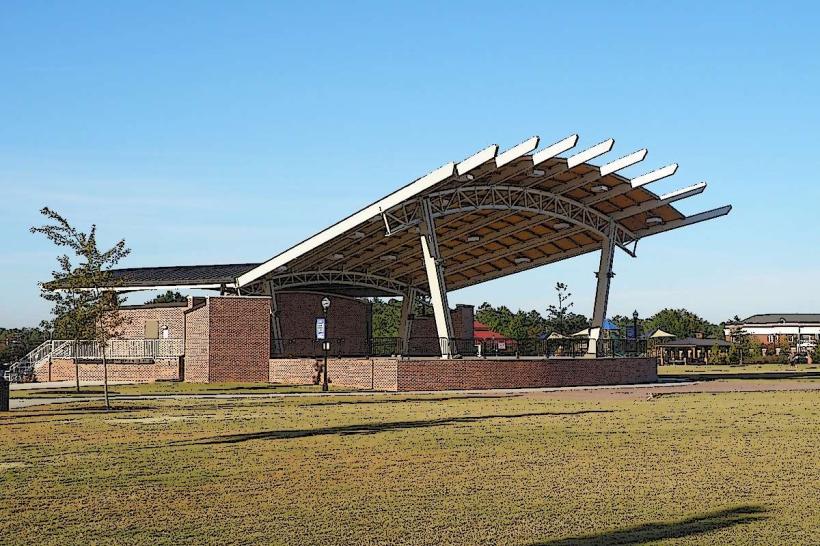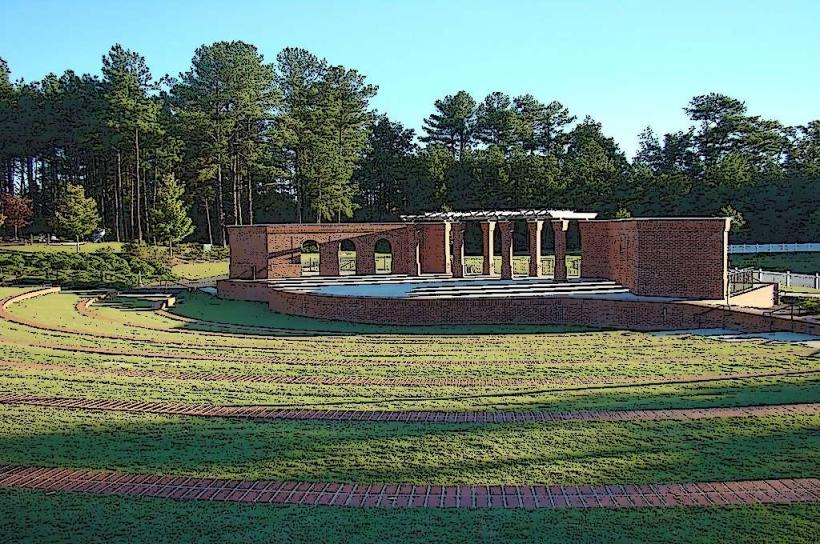Information
Landmark: Woodrow Wilson Boyhood HomeCity: Augusta
Country: USA Georgia
Continent: North America
Woodrow Wilson Boyhood Home, Augusta, USA Georgia, North America
The Woodrow Wilson Boyhood Home is a historic house museum located in Augusta, Georgia. It preserves the residence where the 28th U.S. President spent his early childhood.
Visual Characteristics
The house is a two-story brick structure built in the Greek Revival style. It features a symmetrical facade with a central entrance and a prominent portico supported by Doric columns. The exterior brickwork is painted white, contrasting with dark green shutters. The roof is hipped and covered with asphalt shingles.
Location & Access Logistics
The Woodrow Wilson Boyhood Home is situated at 419 Seventh Street in Augusta, Georgia. It is approximately 1.5 miles (2.4 km) southwest of the Augusta city center. On-site parking is available for visitors. Public transport options include Augusta Transit bus routes that stop within a 0.25-mile (0.4 km) radius of the property.
Historical & Ecological Origin
The house was constructed in 1831 by John P. King, a prominent Augusta businessman. It served as the residence for the Wilson family from 1860 to 1861. The original purpose was a private family dwelling. The site is not of ecological origin.
Key Highlights & Activities
Visitors can take guided tours of the restored interior, which includes period furnishings and exhibits detailing President Wilson's life and the history of Augusta during the Civil War era. The grounds are accessible for self-guided exploration.
Infrastructure & Amenities
Restrooms are available on-site. Limited shade is provided by mature trees on the property. Cell phone signal (4G/5G) is generally reliable in this urban area. No on-site food vendors are present, but dining options are available within a 0.5-mile (0.8 km) radius.
Best Time to Visit
The best time of day for photography of the exterior is mid-morning or late afternoon when the sunlight is less direct. The museum is open year-round, with comfortable temperatures typically occurring from April to May and September to October.
Facts & Legends
During the Civil War, the house was occupied by Union troops. A specific historical oddity is that the house was moved 100 feet (30 meters) to its current location in 1960 to preserve it from demolition.
Nearby Landmarks
- Augusta Canal National Heritage Area (0.8km Northeast)
- Augusta Museum of History (1.2km North)
- Morris Museum of Art (1.4km North)
- Riverwalk Augusta (1.6km North)

